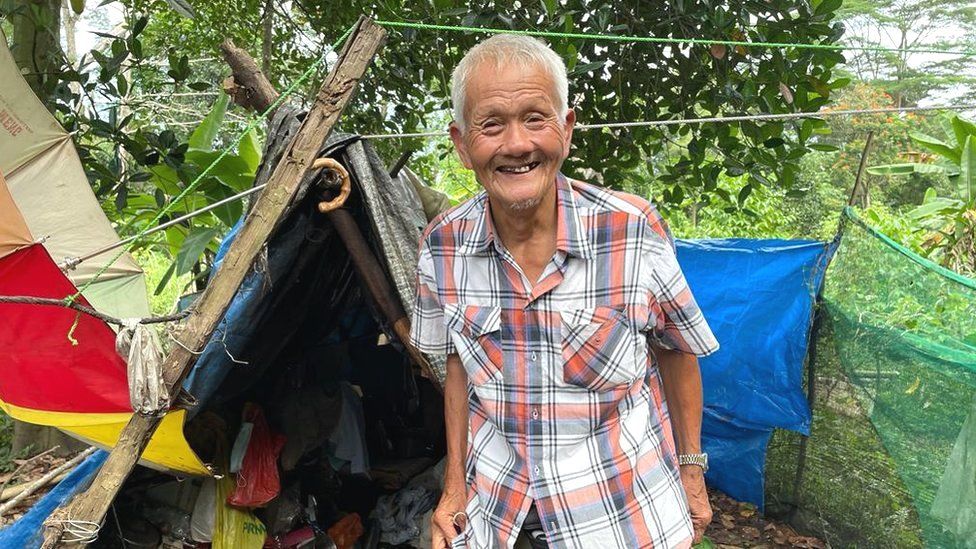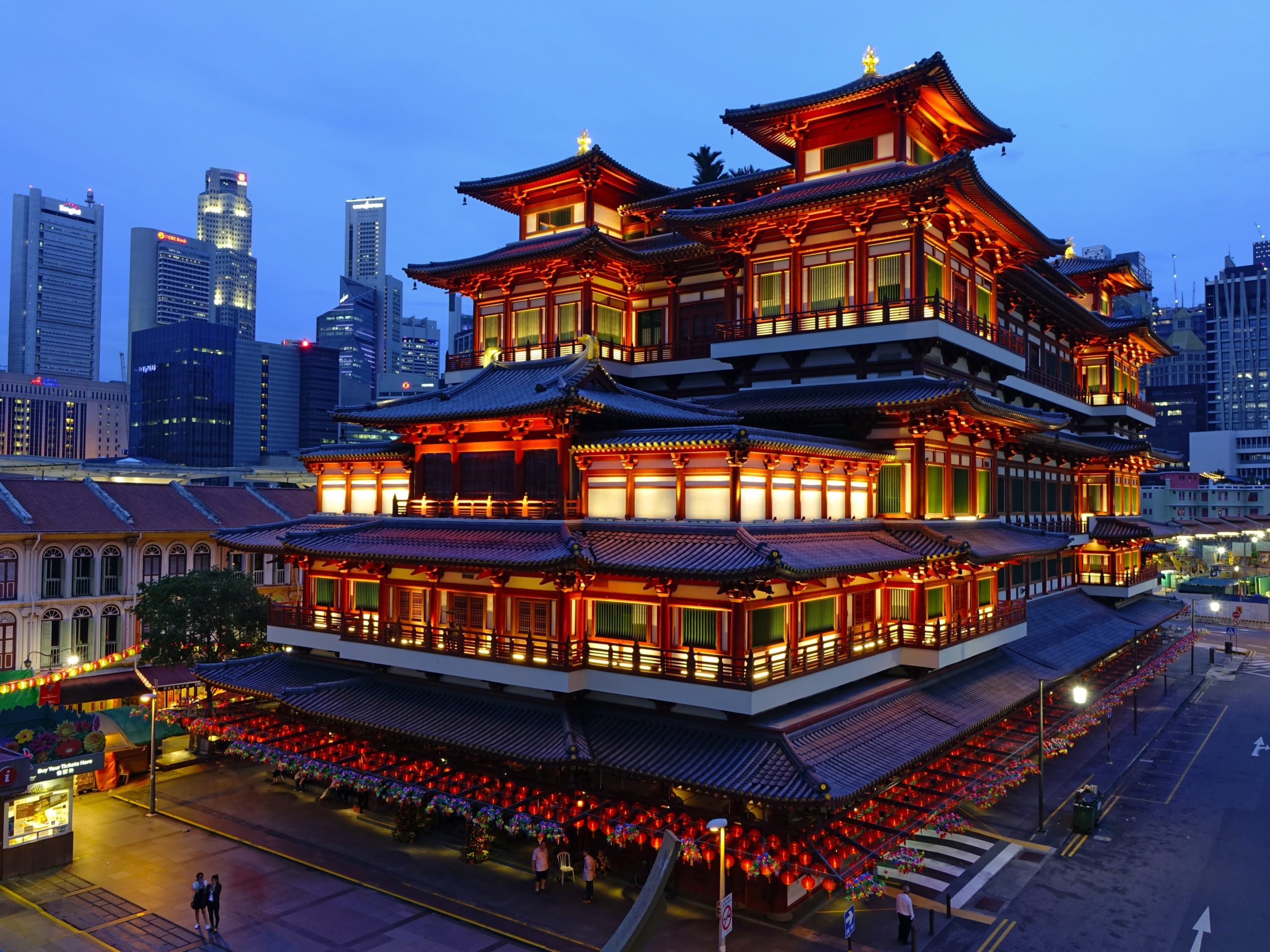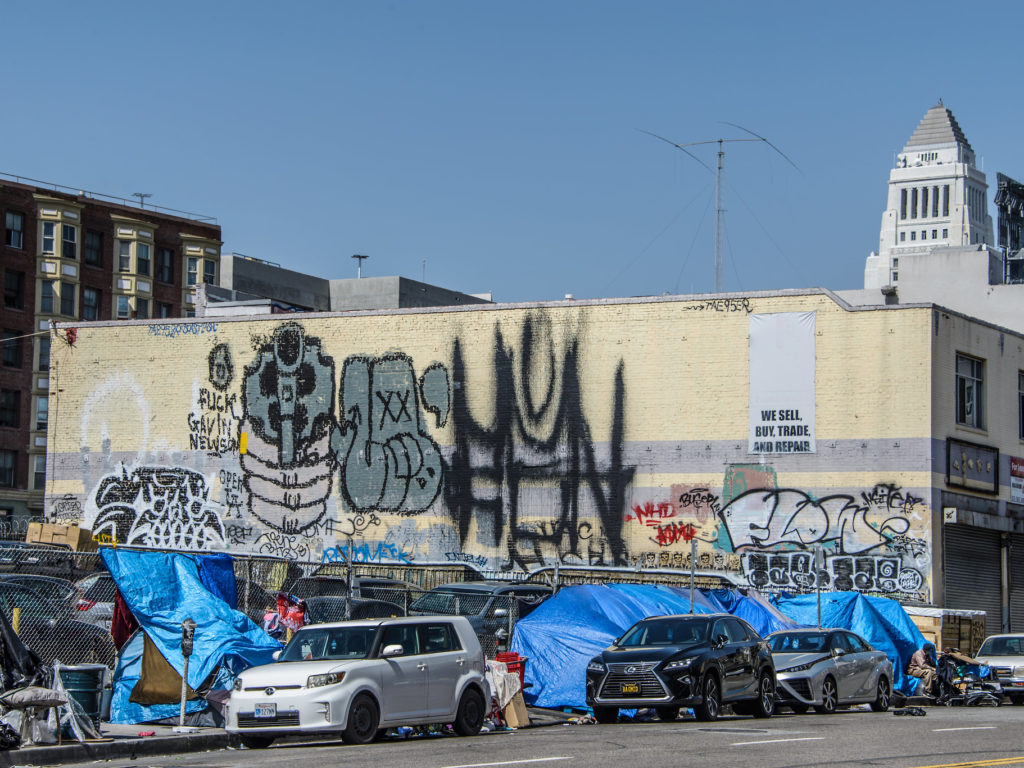The Story of Sleeping Rough
Camping in the woods of Singapore for 30 years
Oh Go Seng. In a tropical country of 5,686,000 where only 1000 people are homeless, he lived in the woods.

Oh Go Seng at his encampment — Photo BBC
Singapore is an incredibly odd bird. They have absurdly powerful state powers, which I attribute to being only the size of one city. It’s much easier to effect mass-change on a single city level. Robert Moses had that kind of power in New York (demolishing several neighborhoods full of people). Mayor Jaime Lerner of Curitiba re-wrote the book on public transportation (60% of Curitibans use public transit daily). Singapore forced its population to accept public housing as a norm in the 60s and 70s, and really set the stage for building a strong middle class (with all the prosperity bonuses you get from that, particularly education).
Their approach was down-right authoritarian, so their rich citizens nominated themselves authors of a wholly Modern (capital ‘M) Singapore. That is the opposite of a generative-ly developed community like a European village. The generative community evolves in a million tiny steps over centuries, crating the rich fabric that demonstrates the 1001 stories that can be read in the stones, or glazing, if you know what to look for.
Narrative Infrastructure is still operating in Singapore: people are still telling stories and adapting spaces. But NI is diametrically opposite from authoritarian urban design, as it relies on ALL the inhabitants to contribute, not the dictates of the elite. That elite was born of a tension between Muslim principles, Chinese communist principles, and British colonialism. The result was a highly competitive city-state that regularly suffered race riots. The governing approach was to suppress individualism and democracy with the aim to pacify divergent stories and make a new people.






I would surmise Mr. Oh’s story has brought a counter-veiling story to the macro narrative of Singapore that focuses on progressive civilization. Discovering a gentlemen who’d managed to “live in a garden” in the city whose crowing-achievement is public housing is likely a psychic slap in the face to Singapore’s 50 year narrative. The story of sleeping rough is anathema.
If I may indulge my own cultural bias, I’d call Mr. Oh’s counter-narrative poetic compared to the ongoing housing crisis around the world. Industrialized cities like Los Angeles have 40,000 homeless people on the streets tonight. Compared to Singapore’s 1,000, the city of The Angles has a great multitude of souls shivering in tents tonight. These conditions are fueled again by a oligarchic mind-set of Not In My Back Yard (NIMBY) wherein the voting rich of California have mandated development caps to keep their narrative fabric the way they like it.
The contradiction being that their own lifestyles are predicated on a massive service industry that they desire, but don’t want to house. So instead of accommodating the plurality of stories in proper homes, the plurality is blocking the sidewalks of Los Angeles with encampments.
This story was developed from the BBC article sent to me by Calvin Niles who correctly identified Mr. Oh’s story as being a significant exemplar of how counter-narratives are often our wake-up call.
Credit to Calvin for distracting me from the upcoming American Planning Association national conference where I’ve been invited to present Narrative Infrastructure to the city planning industry of the United States.
